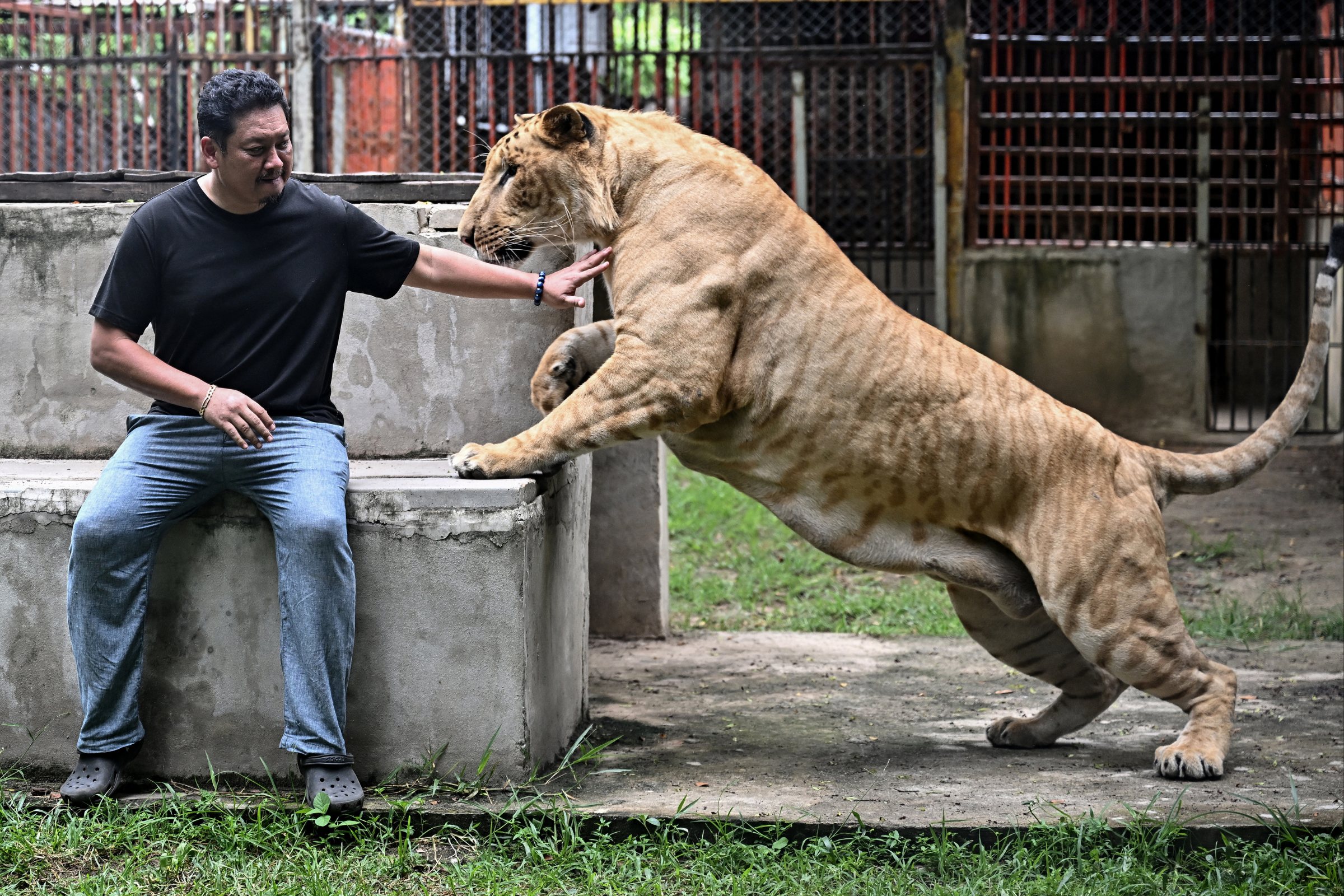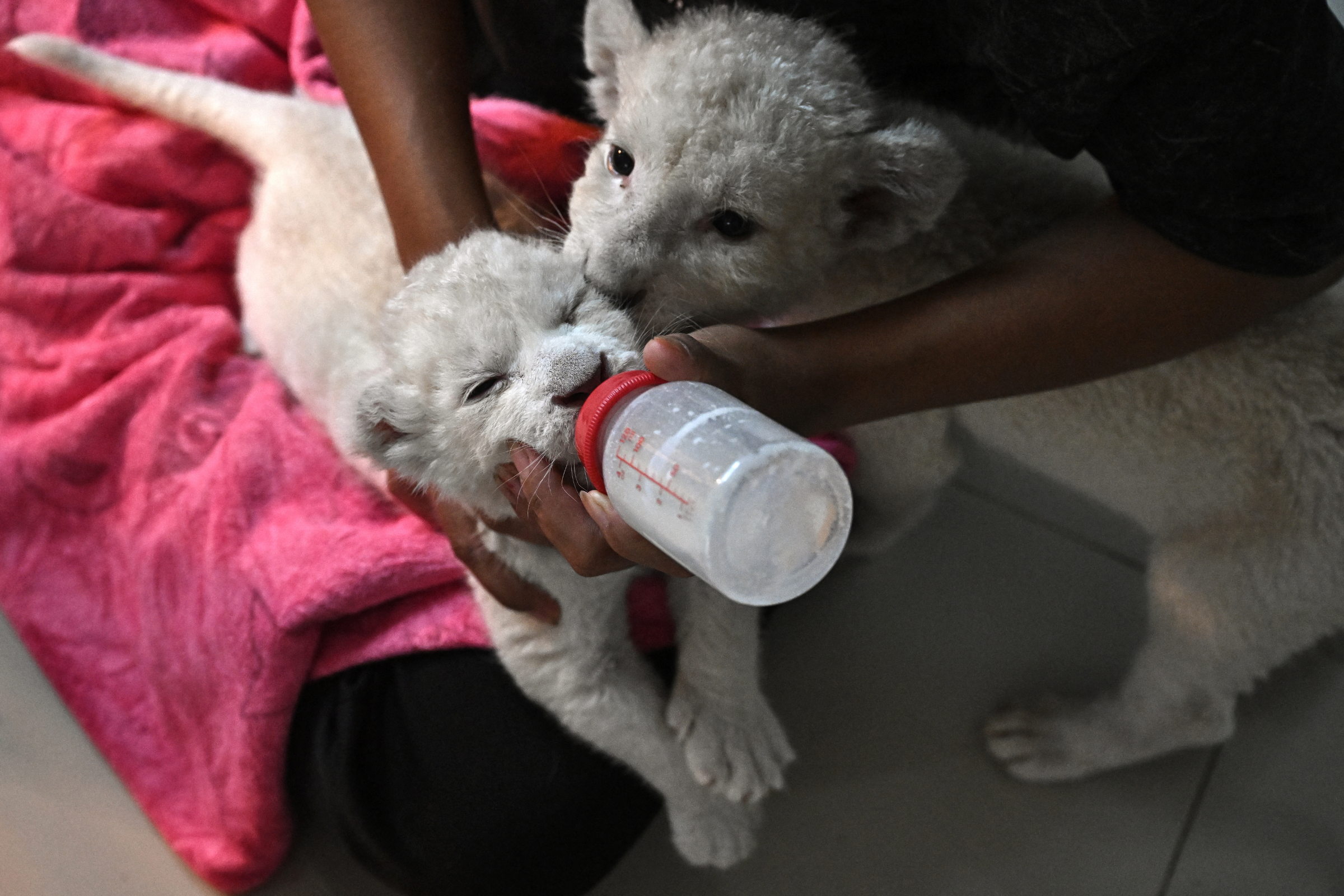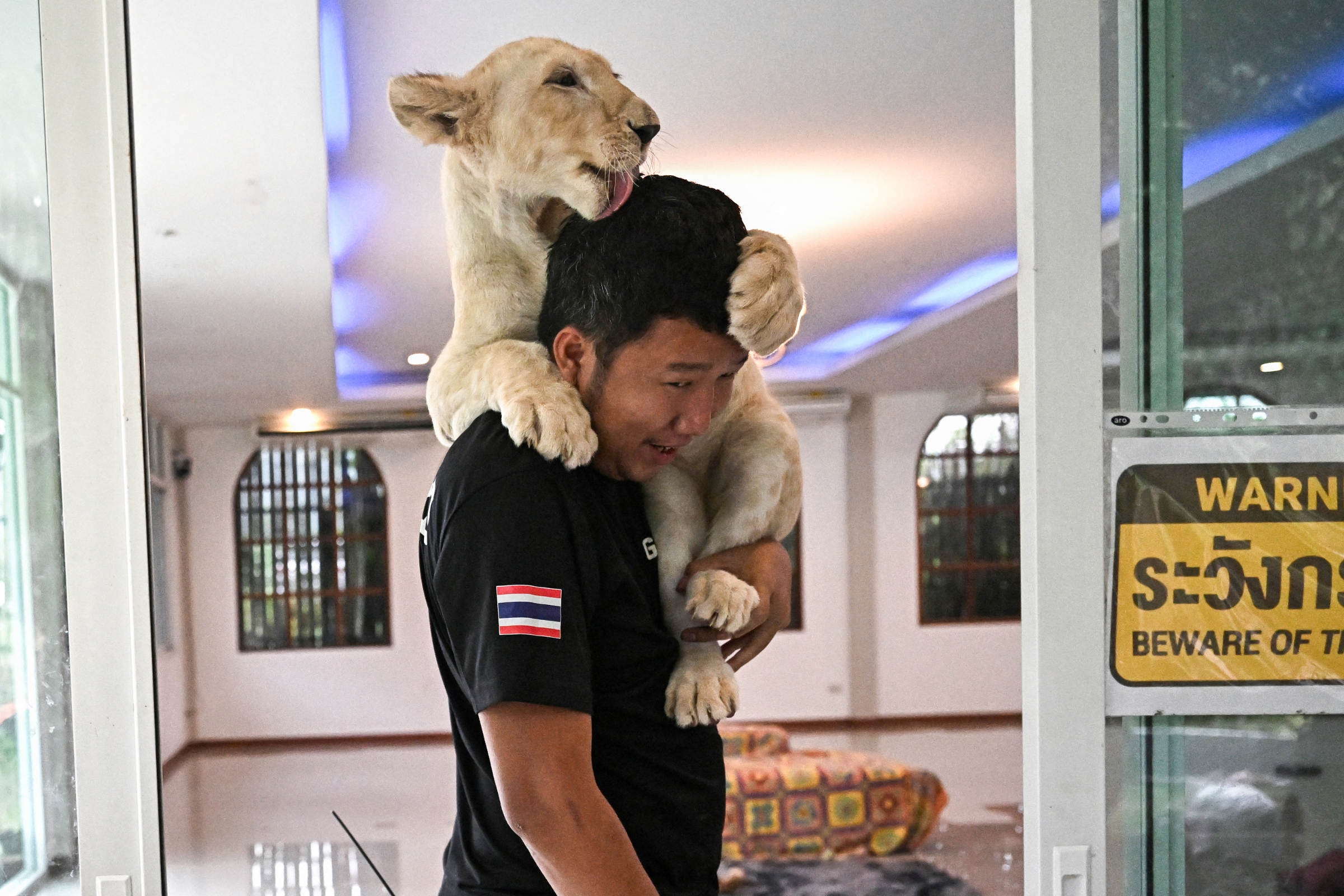They are the pets of Tharnuwarht Plengkemratch, who has nearly 3 million followers on TikTok.
"They're playful and affectionate, just like dogs or cats. I want to show people that lions can actually bond well with humans," he said from the enclosure behind his workshop, adding that he regularly plays with the three animals.
To demonstrate, Tharnuwarht cautiously entered the enclosure of the liger (lion-tiger hybrid) named "Big George", but could only stay for a few minutes before retreating behind the safety fence as the large 200 kg animal playfully pounced.
Keeping lions is legal in Thailand. The number of captive lions in the country has skyrocketed in recent years, with nearly 500 registered at zoos, breeding farms, cafes, and private homes.
Experts warn that this trend poses a danger to both humans and animals and could fuel illegal wildlife trafficking domestically and internationally.
"It's crazy," said Tom Taylor, director of the Wildlife Friends Foundation Thailand (WFFT). "It's scary to imagine what the next 10 years will be like if the laws don't change."
 |
Tharnuwarht plays with Big George the liger in his enclosure in Chiang Mai, Thailand. Photo: AFP |
Tharnuwarht plays with Big George the liger in his enclosure in Chiang Mai, Thailand. Photo: AFP
In 2022, Thailand enacted a law requiring owners to register and microchip their lions and notify authorities before moving them. However, the law is considered to have many loopholes, as there are no breeding limits, few regulations on enclosures and living conditions, and no regulations controlling liger hybrids.
Births of rare native species like tigers must be reported within 24 hours. For lions, owners can wait up to 60 days before notifying authorities.
"That's a long time. What can you do with a litter of lion cubs in 60 days? Anything," Taylor said.
He and his colleagues at WFFT have been tracking the rise in captive lions through field visits and social media. They recorded about 130 lions in 2018, increasing to nearly 450 in 2024. However, nearly 350 lions they once tracked have since "disappeared," their whereabouts unknown.
This suggests that there may be cases of lions dying unreported or being moved elsewhere, Taylor said. "We've interviewed traders in the region, they've given us prices for live and dead lions, and they say they can get them across the border."
 |
8-day-old lion cubs at a breeding facility in Chachoengsao province, Thailand. Photo: AFP |
8-day-old lion cubs at a breeding facility in Chachoengsao province, Thailand. Photo: AFP
As lions are a vulnerable species, owners are only permitted to sell lions and their parts if licensed under CITES (the Convention on International Trade in Endangered Species of Wild Fauna and Flora).
Meanwhile, in Thailand, legal imports of lion parts such as bones, skin, and teeth have declined in recent years. However, demand persists, raising suspicions of an illegal supply on the market.
Trader Pathamawadee Janpithak, 32, initially traded in crocodiles but switched to lions when crocodile prices fell.
"The lion trade gradually became a business opportunity I couldn't ignore," she said in front of rows of caged lion cubs, adding that one-month-old cubs are priced around 15,500 USD, down from a peak of over 24,000 USD.
Captive lions are typically fed about 2 kg of chicken per day and can produce 2-6 cubs, 1-2 litters per year. Pathamawadee's three breeding facilities house about 80 lions. Some have white fur due to genetic mutations and inbreeding.
She sells about one-half of the 90 cubs bred each year, usually to other breeders who are opening a growing number of "lion cafes" where customers can pet and take photos with them.
 |
Lion cubs play with a trainer at a cafe in Chiang Mai, Thailand. Photo: AFP |
Lion cubs play with a trainer at a cafe in Chiang Mai, Thailand. Photo: AFP
Pathamawadee recently stopped selling cubs to cafes, as these establishments often resell them within weeks as they grow larger. Some are returned to Pathamawadee's facility injured and unable to breed.
Sadudee Punpugdee, director of the Department of National Parks, Wildlife and Plant Conservation (DNP), acknowledged that the growing lion population is a problem for the country.
"But private ownership has existed for a long time, so we're approaching the issue gradually, which will restrict lion imports so breeders are forced to rely on the domestic population," Sadudee said. "Then inbreeding will increase, the quality of lions will decrease. We believe demand will follow suit."
Overburdened authorities face difficult choices, as confiscated animals become their responsibility, said Penthai Siriwat, an expert from the World Wide Fund for Nature (WWF) Thailand.
"Before each intervention, officials must consider very carefully, because the costs incurred are very large," Penthai said.
Duc Trung (According to AFP, Bangkok Post, Thai Rath)












